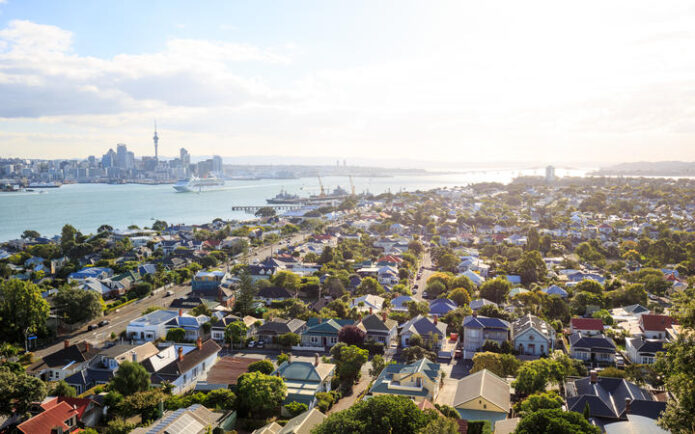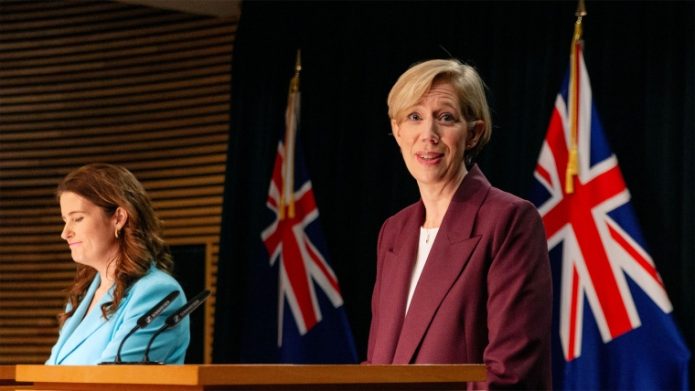PHOTO: Photo: Vinay Ranchhod
Analysis – The Human Rights Commission has released initial guidelines on what the right to a decent home means in Aotearoa, which it says will now inform an inquiry into successive governments’ failure to meet international obligations.
The move has reframed the country’s housing crisis as a human rights issue and some are now urging the government to replicate what the first Labour administration did to address the issue in similar times of economic crisis.
But how is access to adequate housing a human right? Can a modern Labour government confront the issue in the same way party predecessors did in the 1930s and ’40s?
Housing and human rights
According to the New Zealand Human Rights Commission, providing access to adequate housing is a binding legal responsibility, so that the right to adequate housing must be progressively realised in New Zealand.
The right to housing intersects many aspects of international human rights law and is codified in several key instruments, including the Declaration of Human Rights, the International Covenant on Economic, Social and Cultural Rights and the International Convention on the Elimination of All Forms of Racial Discrimination.
The United Nations Committee on Economic Social and Cultural Rights has defined seven standards that must be met for housing to be adequate.
- Security of tenure: Residents should be protected against forced eviction, harassment and other threats, including predatory redevelopment and displacement
- Habitability: Housing must provide residents with adequate space that protects them from the elements, and other threats to health, structural hazards, and disease
- Accessibility: Housing must be accessible to all, and disadvantaged and vulnerable groups including the disabled must be accorded full access to housing resources
- Affordability: Housing costs should be at such a level so as not to compromise the attainment of other basic needs. For example, people should not have to choose between paying rent and buying food
- Availability of services, materials, facilities and infrastructure: Housing must provide access to services essential for health, security, comfort and nutrition. This includes water and sanitation, power and other essential utilities
- Location: Housing should not be built on polluted sites or in immediate proximity to pollution sources that threaten the right to health of residents. The physical safety of residents must be guaranteed
- Cultural Adequacy: Housing and housing policies must guarantee the expression of cultural identity and diversity
The Human Rights Commission’s inquiry later this year will look at how the government has sought to guarantee these.
READ MORE VIA RNZ
MOST POPULAR
 John Key says housing ‘boom run is over’
John Key says housing ‘boom run is over’ Barfoot & Thompson Auckland house sales plummet by 41%
Barfoot & Thompson Auckland house sales plummet by 41% THE KING: Aussie residential real estate agent does $120m of sales in just two weeks
THE KING: Aussie residential real estate agent does $120m of sales in just two weeks Prime Minister Jacinda Ardern is now a property millionaire
Prime Minister Jacinda Ardern is now a property millionaire AUSTRALIA: Is this the biggest property scam ever? | WATCH
AUSTRALIA: Is this the biggest property scam ever? | WATCH Abandoned land for sale
Abandoned land for sale Top Remuera real estate agent won’t get vaccinated, wear mask
Top Remuera real estate agent won’t get vaccinated, wear mask HOUSING CRISIS: ‘Level and trajectory’ of house prices creating risks for recent buyers
HOUSING CRISIS: ‘Level and trajectory’ of house prices creating risks for recent buyers ‘Haunted’ mansion destroyed in massive blaze
‘Haunted’ mansion destroyed in massive blaze The great New Zealand ‘Property Boom’ is OVER!
The great New Zealand ‘Property Boom’ is OVER!












